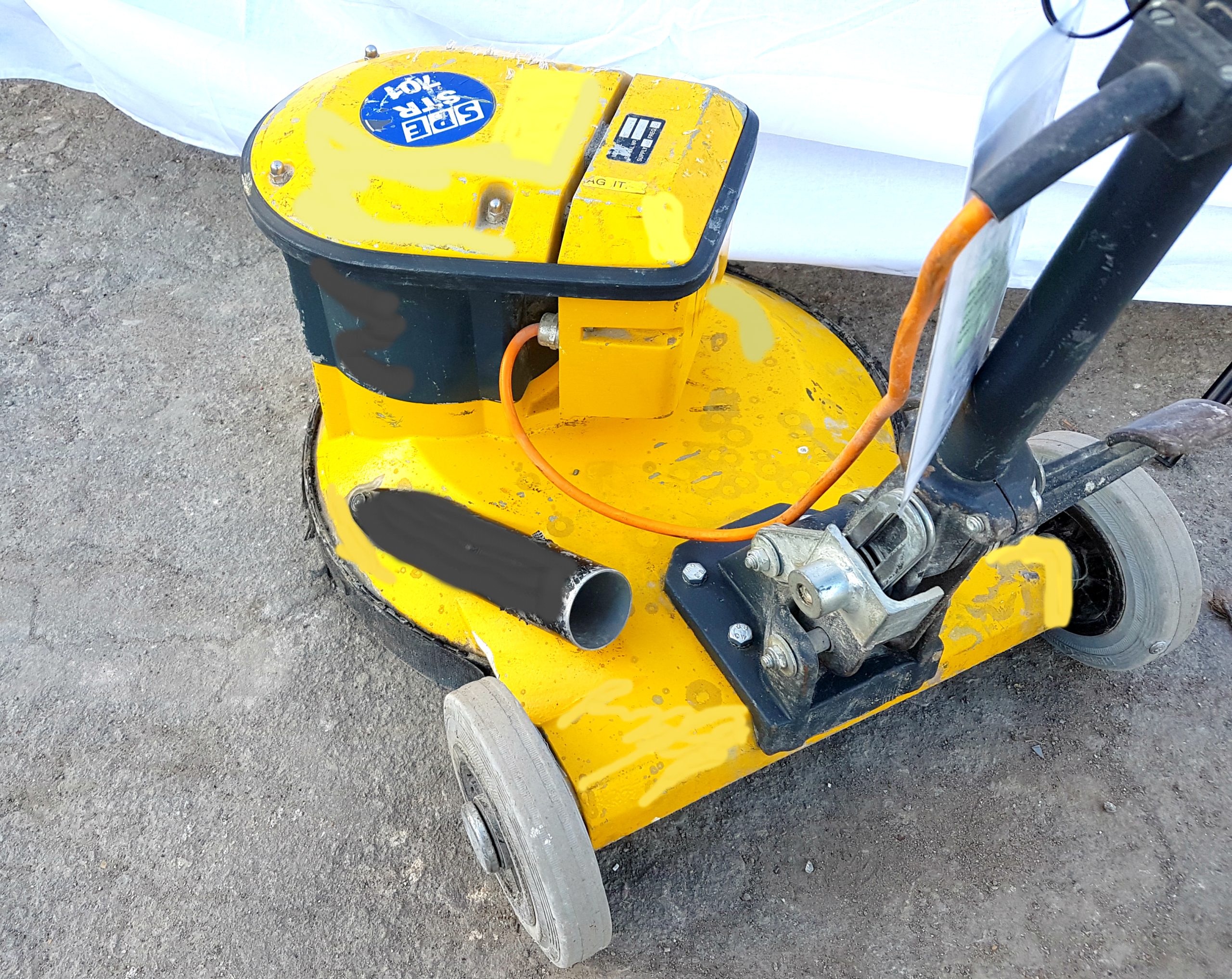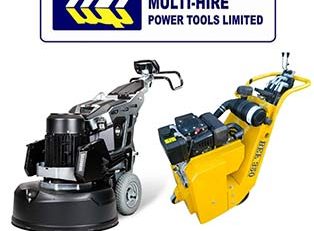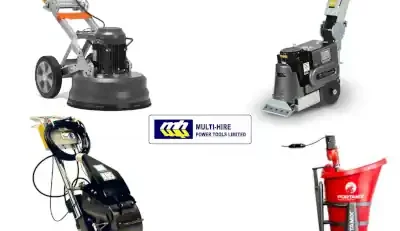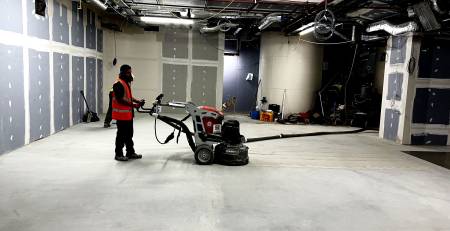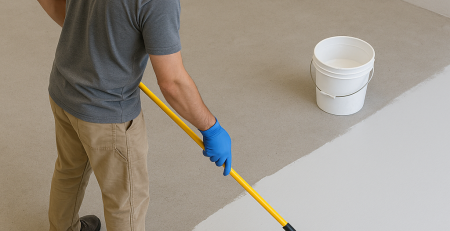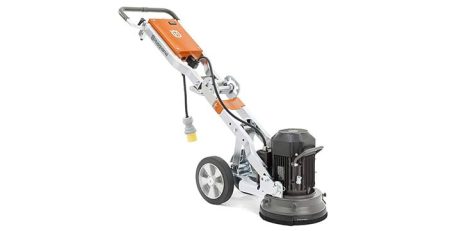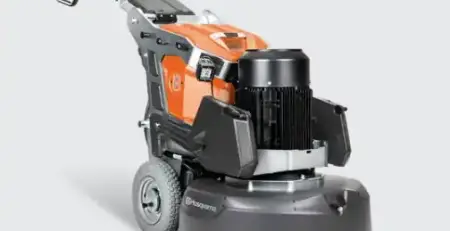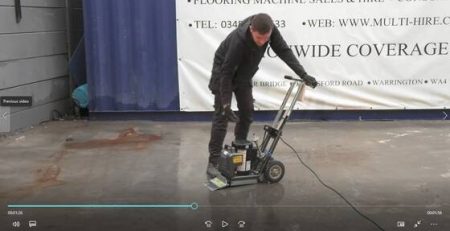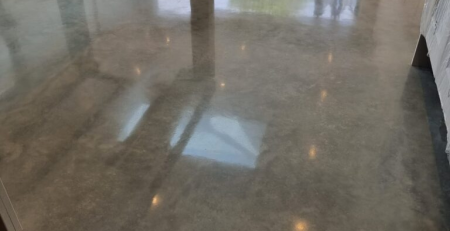How to Choose the Best Floor Sander: A Complete Guide
Choosing the right floor sander can make all the difference in achieving a smooth, flawless finish. Whether you’re working on concrete, wood, or hardwood floors, selecting the right tool for the job is essential for both the quality of your work and the efficiency of your project.
Understanding the Different Types of Floor Sanders
When it comes to floor sanding, not all sanders are created equal. The type of sander you need depends on the material you’re working with. Here’s an overview of the most common types of floor sanders:
Concrete Floor Sanders
For sanding concrete floors, you’ll need a powerful concrete floor sander designed to handle the rough, durable surface of cement. These sanders are built with heavy-duty motors and robust abrasive materials that can tackle the toughness of concrete and smooth the surface. Browse our range of concrete floor sanders & burnishers here.
Wood and Hardwood Floor Sanders
Wood and hardwood floors require a sander that can offer precision and control to prevent damage to the wood. Wood floor sanders are ideal for softer woods like pine, while hardwood floor sanders are typically more powerful and suited for denser woods like oak or walnut. One highly recommended option for wood floors is the 110V Light Duty Floor Sander, which provides an excellent finish for residential projects.
Key Features to Consider When Choosing a Floor Sander
When choosing a floor sander, it’s important to consider the features that will make your sanding job easier and more efficient. Here are some key aspects to keep in mind:
Power and Speed Control
A sander’s motor power and speed settings are critical. Higher power is required for tougher surfaces like concrete, while wood and hardwood floor sanders benefit from variable speed settings to adapt to different materials. Look for sanders with adjustable speed controls to give you greater flexibility.
Sanding Pad and Abrasive Materials
Different surfaces require different types of sanding pads and abrasive materials. For concrete floors, you’ll need coarser abrasives, while wood floors require finer grades to avoid damaging the surface. Make sure the sanding pad you choose matches the material you’re working with.
Dust Collection System
Sanding floors can generate a lot of dust, which not only makes the area messy but can also be harmful to your health. A dust collection system is essential to minimize cleanup and protect your lungs. Many floor sanders, like the STR 701 Rotary Floor Sander , come with built-in dust control systems to keep the work area clean.
Weight and Maneuverability
Sanding can be a lengthy process, so a lightweight, easy-to-maneuver sander can make your job a lot more comfortable. Opt for a sander that is easy to control, especially if you’re a beginner. The 110V Light Duty Floor Sander is a great example of a user-friendly machine designed for precise control.
Comparing the Best Sanders for Concrete, Wood, and Hardwood Floors
Different floor types demand different types of sanders. Here’s a quick look at the best sanders for each floor type:
Best Sanders for Concrete Floors
When sanding concrete floors, you’ll need a machine that can handle the toughness of the material. Concrete sanders, such as the STR 701 Rotary Floor Sander, are ideal for the job, offering a robust motor and durability. These machines are built to deliver a smooth finish on rough concrete surfaces.
Best Sanders for Wood and Hardwood Floors
For wood and hardwood floors, look for sanders that can smooth and refine without causing damage. The 110V Light Duty Floor Sander is an excellent choice for wood floors, providing a fine finish while being easy to handle. If you’re working with hardwood, ensure your sander has enough power to prevent over-sanding and maintain the wood’s natural texture.
How to Use a Floor Sander Effectively
Using a floor sander is straightforward, but there are a few things to keep in mind:
- Preparation: Clear the floor area of furniture, and cover any exposed surfaces to protect them from dust.
- Start with Coarse Grit: Begin with a coarse grit for rough sanding, then gradually move to finer grits for a smoother finish.
- Even Pressure: Maintain even pressure on the sander to avoid gouging or uneven sanding.
- Safety First: Always wear protective gear, including a dust mask and goggles, when sanding floors.
Top 5 Floor Sanders You Should Consider in 2025
Here are some top recommendations for floor sanders based on different needs and budgets:
- STR 701 Rotary Floor Sander – Ideal for concrete surfaces and rough floors, this machine provides power and efficiency. View it here.
- 110V Light Duty Floor Sander – Perfect for wood and hardwood floors, offering precision and ease of use. View it here.
- Handheld Sanders & Grinders – Great for getting into corners and edges where a traditional sander can’t reach.
- Industrial Belt Sander – A high-powered option for large commercial projects.
- Orbital Sander – A versatile option that works well on both concrete and wood floors for a smooth finish.
Common Mistakes to Avoid When Choosing a Floor Sander
When selecting a floor sander, it’s easy to make a few common mistakes:
Not Considering the Type of Flooring
One of the most important factors in choosing the right sander is knowing the type of flooring you’re working with. Concrete, wood, and hardwood all have different sanding requirements, and using the wrong sander can damage the floor.
Skipping the Research on Dust Control Systems
Dust control is a crucial aspect of any sanding project. Skipping this consideration could leave your workspace messy and unhealthy. Ensure your sander has an effective dust collection system, especially for indoor projects.
Conclusion: Making the Right Choice for Your Floor
Choosing the right floor sander is key to achieving a flawless finish on your project. Whether you’re sanding concrete, wood, or hardwood floors, make sure to select a sander that’s suited to the specific material and project requirements. By keeping in mind power, sanding pads, dust control, and maneuverability, you can ensure a smooth and professional result.
If you’re ready to get started on your floor sanding project, check out our selection of top-rated floor sanders and related tools to find the perfect fit for your needs.
For more information or to browse our full range, including sanders, grinders, polishers, scabblers, vacuums, tools & more, visit our full hiring catalogue here.
If you want to buy your tools outright, we also have an extensive range of machines, tools & more for sale here.


